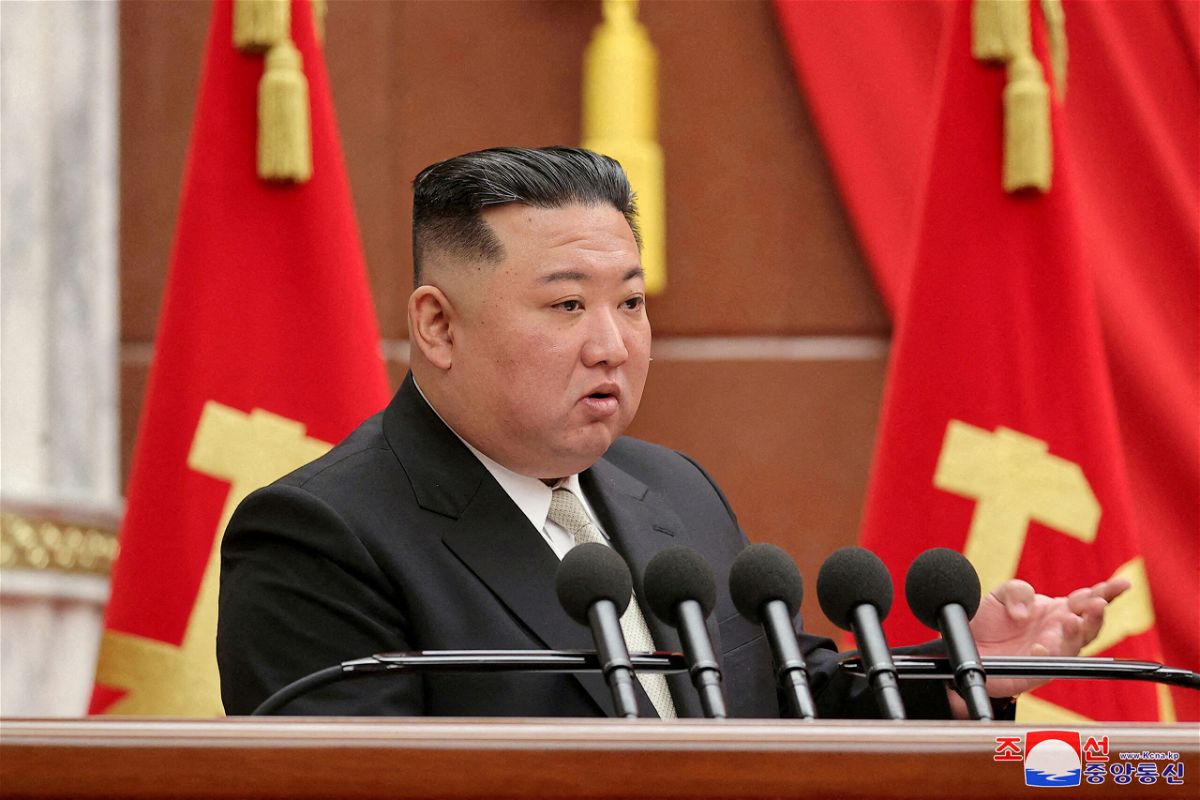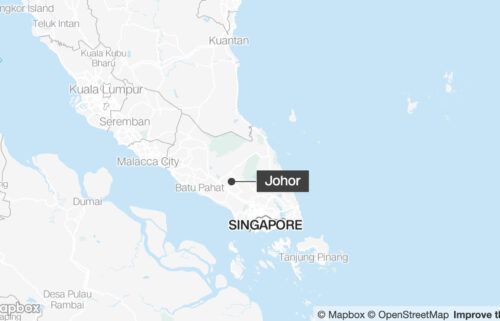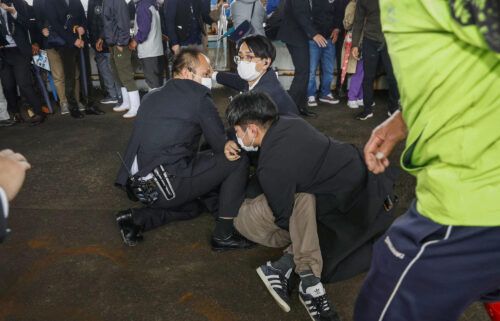Fear and confusion in Japan’s Hokkaido as North Korean missile triggers evacuation order

North Korean leader Kim Jong Un attends a meeting in Pyongyang
By Gawon Bae and Emiko Jozuka, CNN
A North Korean missile sparked fear on the Japanese northern island of Hokkaido Thursday after the government’s emergency alert system warned residents to take cover.
Millions of people received a J-alert, or evacuation order, shortly before 8 a.m., urging them to seek shelter as the missile could land on or near the island.
But soon after, fear turned into anger and confusion as the evacuation order was lifted amid reports that it had been sent in error, with local officials saying there was no possibility of the missile hitting the island and Tokyo later confirming it had fallen outside Japanese territory, in waters off the east coast of the Korean Peninsula.
Many residents were critical of the decision to send the alert.
“What is the use of the J-Alert, which warns of a missile falling when you do not know where it will fall?” asked one Twitter user. “In the end, it serves no purpose other than to instill in the Japanese people the feeling that Japan is being targeted, and to scare them.”
Another Twitter user said that even had the alert been warranted there would have been too little time to find shelter.
Japan’s Chief Cabinet Secretary Hirokazu Matsuno defended the government’s response at a press conference in Tokyo on Thursday, but admitted “We did not correct the information issued by the J-Alert.”
He said the alert was “appropriate” given the limited information available at the time and said the government had updated the alert once it was determined the missile would not fall near Hokkaido.
This is not the first time there have been issues with the J-Alerts. Last October, Japan apologized for the malfunctioning of the early warning system when residents in nine of Tokyo’s island towns and villages were mistakenly sent alerts. On that occasion, North Korea had fired a ballistic missile, but it did not pass over the communities who received the alerts.
The latest alarm came after North Korea fired what appeared to be a mid or longer range ballistic missile from an area near Pyongyang, at around 7:23 a.m. local time Thursday, according to South Korea’s Joint Chiefs of Staff.
The White House said it “strongly condemns” the missile test. “This launch is a brazen violation of multiple UN Security Council resolutions and needlessly raises tensions and risks destabilizing the security situation in the region,” National Security Council spokesperson Adrienne Watson said in a statement.
“The door has not closed on diplomacy, but Pyongyang must immediately cease its destabilizing actions and instead choose diplomatic engagement. The United States will take all necessary measures to ensure the security of the American homeland and Republic of Korea and Japanese allies,” Watson added.
The South Korean military believes Pyongyang was testing a new ballistic missile, which it had showcased in a military parade, according to a military official. That missile could be solid-fueled, a type of missile that can be launched more quickly and moved around more easily than the liquid-fueled long-range missiles North Korea has tested in the past.
The official added that there is a possibility that North Korea was testing a part of a reconnaissance satellite, such as a sensor.
North Korea said last year that it would finish preparations to launch a military reconnaissance satellite by this month.
South Korea’s Joint Chiefs of Staff said the missile was launched at a lofted trajectory, flying about 1,000 kilometers (621 miles).
Meanwhile, Japanese Defense Minister Yasukazu Hamada said the missile may have been a type of intercontinental ballistic missile (ICBM), the longest range of North Korea’s ballistic missiles, but that Japanese authorities were continuing to analyze details.
Hamada added that the missile fell into waters outside of Japan’s exclusive economic zone (EEZ).
Chief Cabinet Secretary Matsuno called the launch “an outrageous act that escalates provocations against the entire international community.
“North Korea’s series of actions, including its repeated launches of ballistic missiles, is a threat to Japan, the region and the world,” Matsuno said.
South Korea’s Joint Chiefs of Staff called the launch a “significant act of provocation” and urged Pyongyang to immediately stop, reiterating that ballistic missile launches are in violation of the UN Security Council resolutions.
Thursday’s launch marked the 12th day this year when North Korea has fired at least one missile.
The-CNN-Wire
™ & © 2023 Cable News Network, Inc., a Warner Bros. Discovery Company. All rights reserved.



